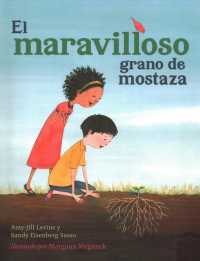Full Description
Innovations in Assessment, Student Experience and Professional Development in Higher Education presents a comprehensive and global study of the latest advancements in Higher Education (HE), featuring contributions from diverse disciplines and international views on innovations in assessment, student experience and professional development.
Critical issues such as how to develop student and staff assessment and feedback literacy, and the use of authentic and formative assessment are discussed. Chapters address quality issues, as well as deliberating the impact of COVID-19 and how it has changed strategies, modes of delivery, and assessment practices, which can be adapted beyond the pandemic. Student experience and the ways in which HE institutions are facilitating students' transitions, progressions, mental health and retention are considered. The book concludes by focusing on the innovative approaches adopted by HE institutions to support the ongoing professional development of staff, which is arguably the cornerstone of innovation.
Contents
Part 1: Innovations in Assessment and Feedback in Higher Education
Chapter 1. A pandemic legacy: Adapting new modes of Teaching Practicum assessment for student teachers in early and primary schools in Malta - Narrative perspectives from six examiners; Josephine Deguara and Josephine Milton
Chapter 2. Improving student engagement through employer-focused assessment; Wilfrid Flanda
Chapter 3. Building assessment literacy and collaboration skills through group assessment in Midwifery Education; Christopher Little and Jodie Preston
Chapter 4. Subjectivity and agency in initial teacher education: The role of authentic assessment; Conor Mellon and Yvonne Emmett
Chapter 5. Walking a tightrope: Using formative feedback to support independent and self-directed learning; Edwin Rajah, Waruni Hewage, and Asanthika Imbulpitiya
Part 2: Innovations in Student Experience in Higher Education
Chapter 6. The future development of pedagogical innovations in the development of professional learning during and after teacher education: A scoping review; Yanxin Shao and Yanmin Zhao
Chapter 7. The impact of student voice in dynamically influencing teaching practice and curriculum design; Claire Stocks, David Wooff, and Dawne Irving-Bell
Chapter 8. Personalising student retention and success through employing recent graduates as student success officers; Luke Millard, Noelle McAra, Jan Law, Euan Dempster, and Lee Hutchison
Chapter 9. Everyone matters: How targeted contextualised study support increases continuation rates; Julie Warden, Thomas J. Robshaw, and Maria Azmanova
Chapter 10. Finding home away from home: Exploring postgraduate students' sense of belonging at a UK University; Min Hooi Yong, Gladson Chikwa, and Javairia Rehman
Part 3: Innovations in Professional Development in Higher Education
Chapter 11. Coaching as a potent tool for personal and professional development in higher education; Catherine Best
Chapter 12. Addressing the professional development needs of the Community of Practice facilitator; Frances Boylan, Melanie R. Brown, and Jennifer Harvey
Chapter 13. Developing and enabling educators: An Open Education and Pedagogy of Care approach to design and deliver a Postgraduate Certificate in Academic Practice (PgCAP); Javiera Atenas and Jo Trowsdale
Part 4: Scholarly Case Studies
Chapter 14. Case 1: Reflecting on assessment and feedback strategies in the Foundation Year Psychology Programme; Yue Yue
Chapter 15. Case 2: Shaping global citizens: Developing intercultural competence through summer volunteer programmes; Nayiri Keshishi and Shelini Surendran
Chapter 16. Case 3: Digital Badges in Higher Education: Next Steps; Susannah Donkor







